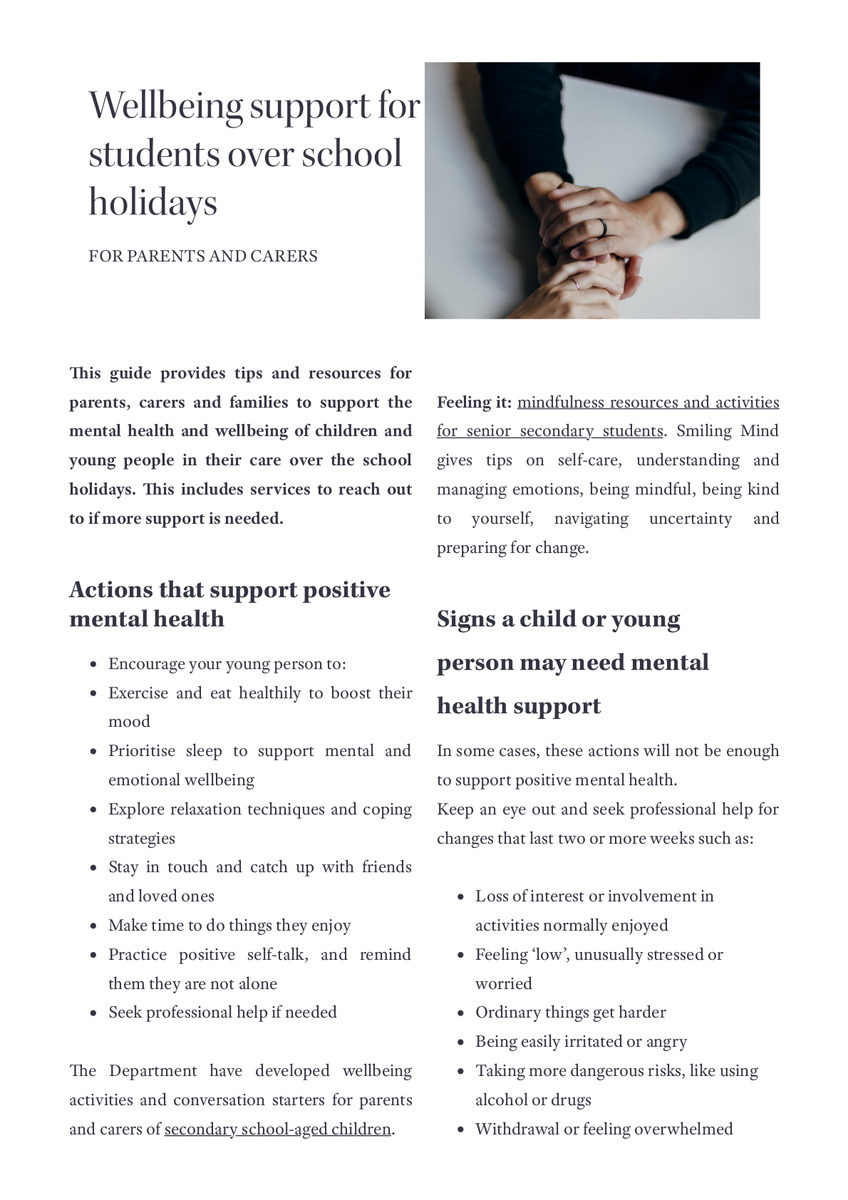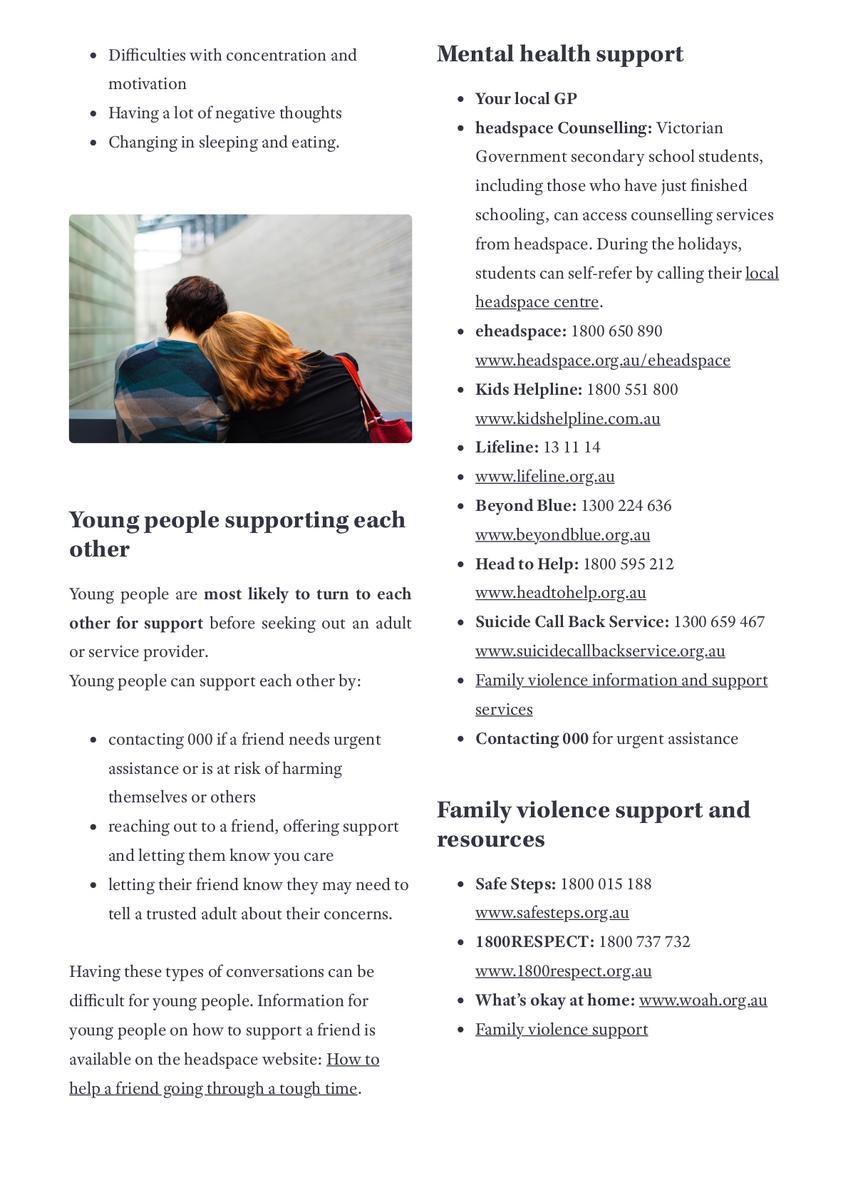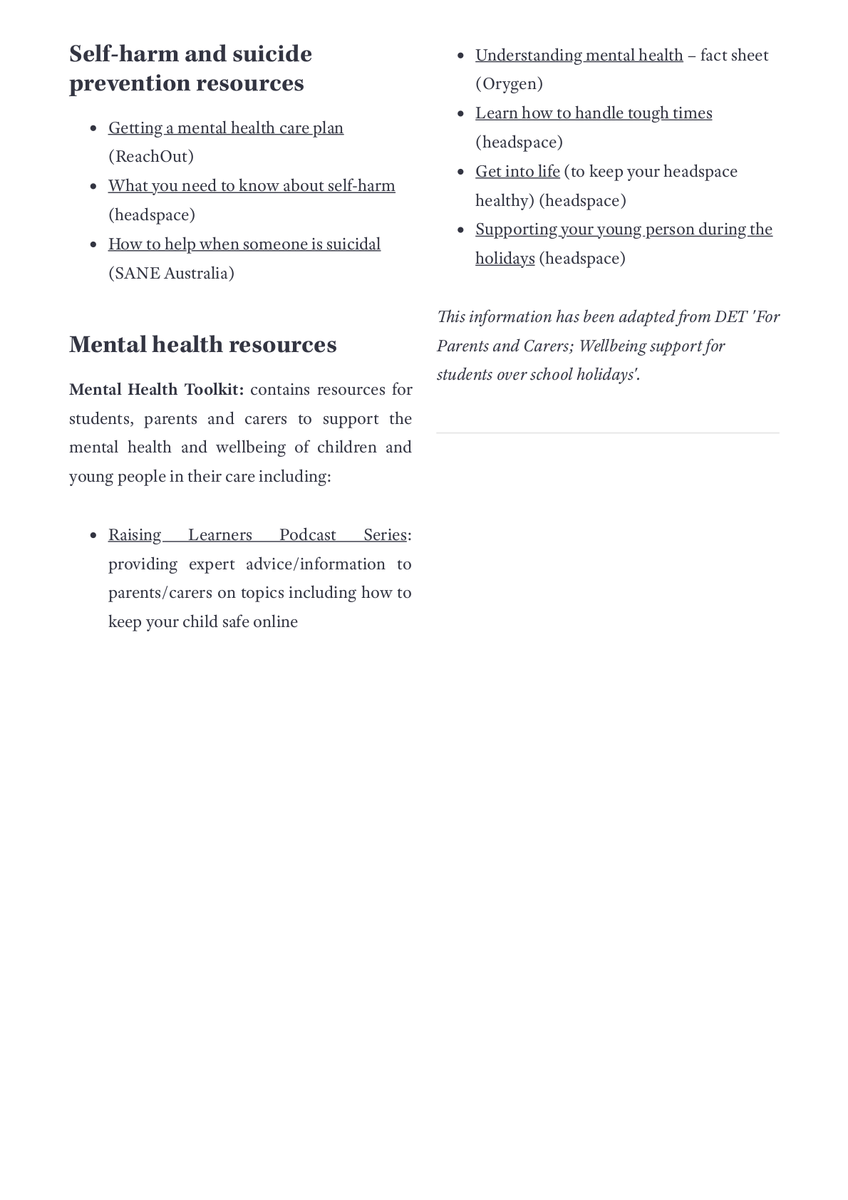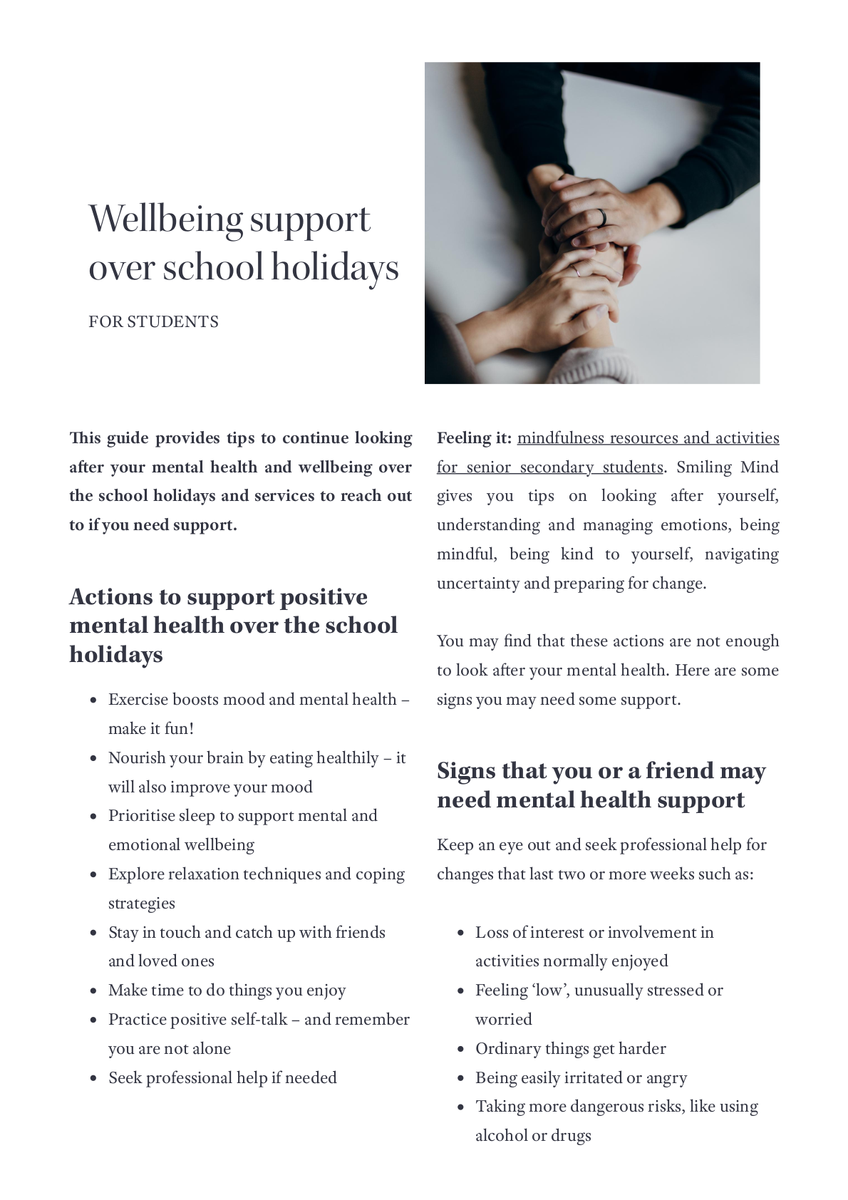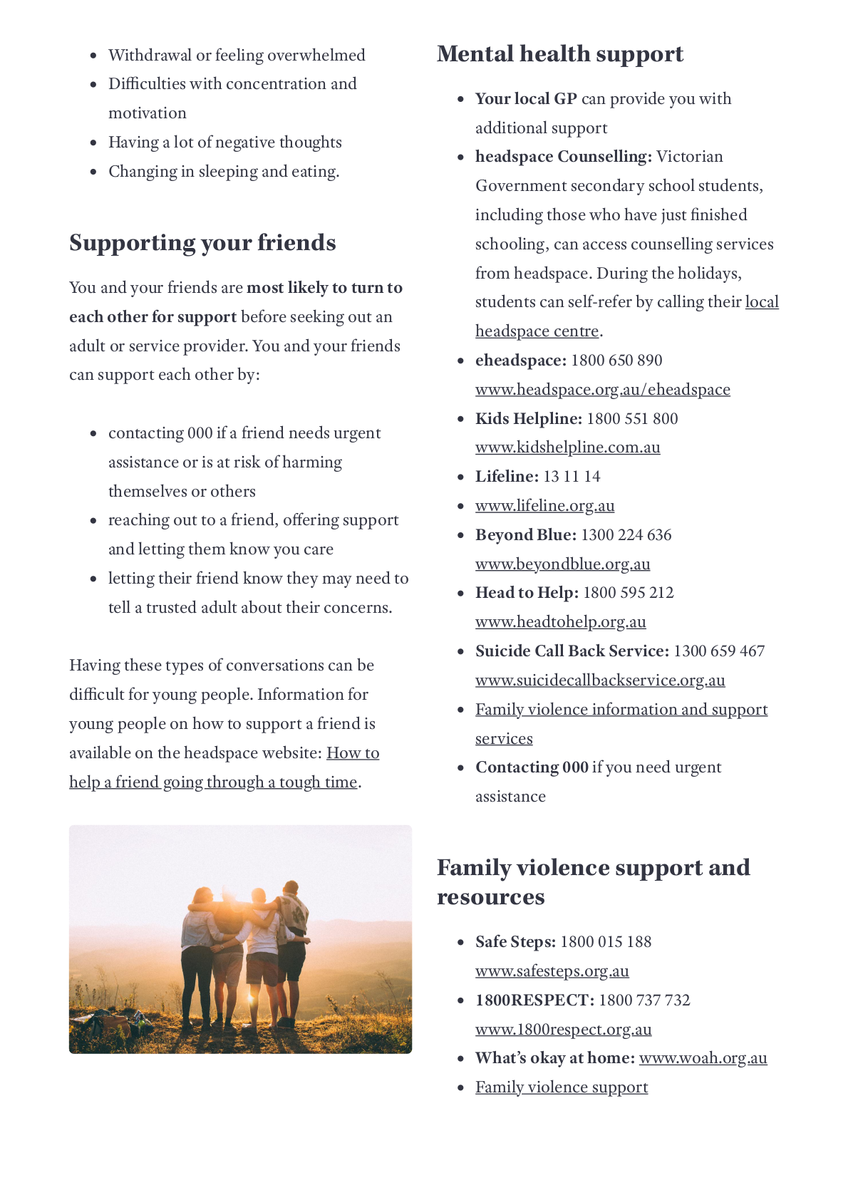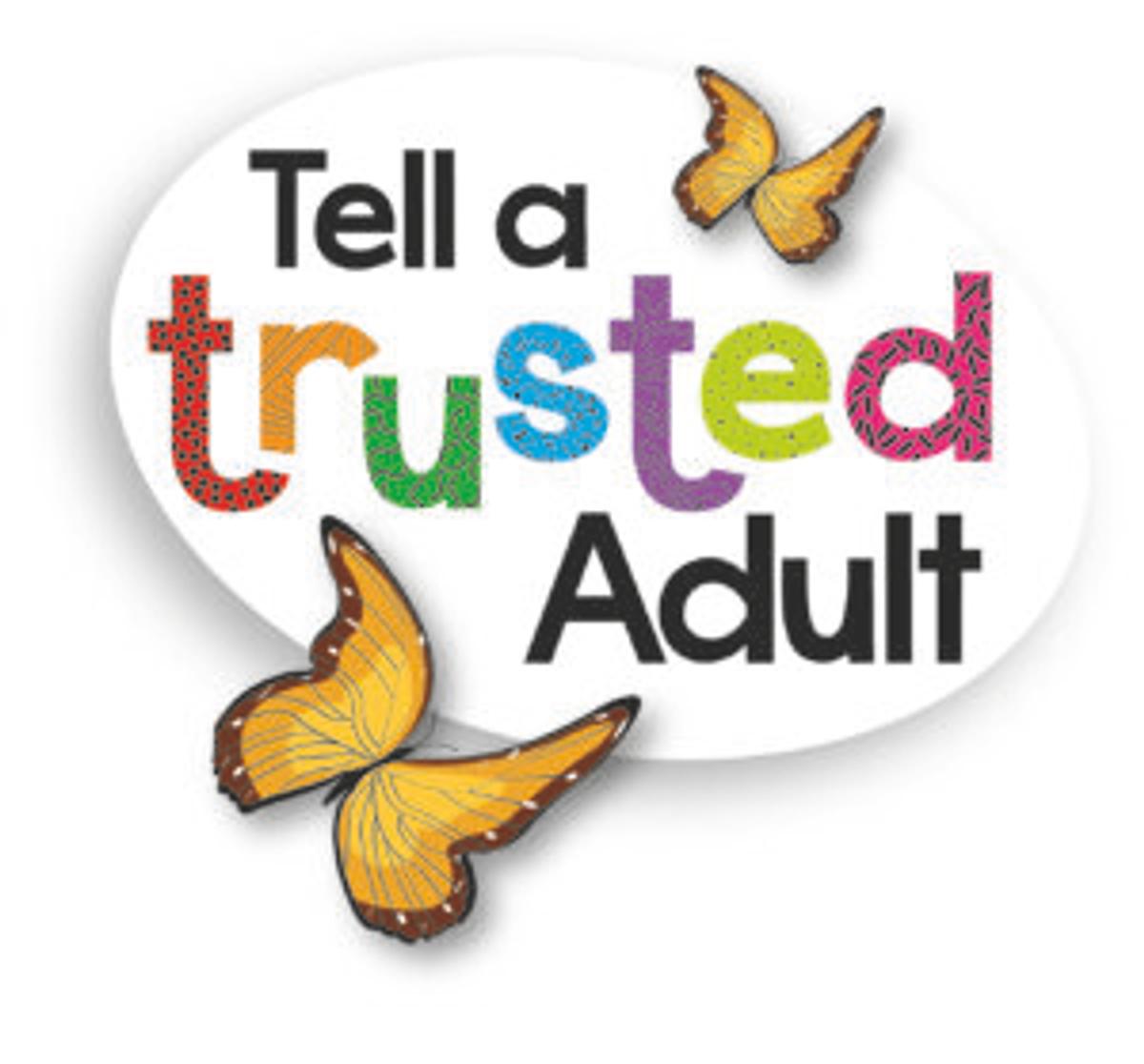Wellbeing

Wellbeing support over school holidays
FOR PARENTS AND CARERS
FOR PARENTS AND CARERS
DSC Student Wellbeing Team
Free Webinar: Child Safety
TELL A TRUSTED ADULT
Join the highly engaging and experienced creators of Tell A Trusted Adult, Sharon Hynes and Katerina Meda, for some great tips on teaching child safety. Passionate about protecting children and giving them a voice, Sharon and Kat have created one of the most visually engaging and flexible child safety resources available.
Two sessions are available to sign up here.
- Thursday, 15 April at 3.30 - 4.00 pm
- Wednesday, 21 April at 3.30 - 4.00 pm
Learning Strengths & Reducing Anxiety
By Andrew Fuller (Psychologist)
When anxiety affects kids, some become ‘chatty & scatty’ while others become ‘broody & moody.’ Generally, the ‘chatty & scatty’ kids become distractible and lose concentration. The ‘broody & moody’ kids become sullen, avoidant and lose motivation. They can become hypervigilant and see threats where there are none.
I have written extensively about the treatment of anxiety in my books. This paper is specifically about learning.
The capacity of anxious young people to panic in tests and exams or freeze when called upon can make some avoidant of school. Others incorrectly assume that they are not clever and cannot be successful. Helping these young people to identify and build upon their learning strengths increases their self-belief and feelings that they can succeed.
There is no failure, only feedback
Anxious kids can convert setbacks into catastrophic assaults on their self-esteem. Helping them to learn how they are smart (rather than whether they are smart) is a major advantage. As many of these kids are ruminative worriers, setting up a positive resilient mindset assists them.
Continue reading the article here:

